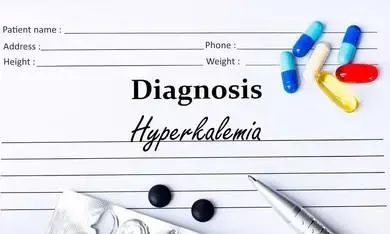- Home
- Medical news & Guidelines
- Anesthesiology
- Cardiology and CTVS
- Critical Care
- Dentistry
- Dermatology
- Diabetes and Endocrinology
- ENT
- Gastroenterology
- Medicine
- Nephrology
- Neurology
- Obstretics-Gynaecology
- Oncology
- Ophthalmology
- Orthopaedics
- Pediatrics-Neonatology
- Psychiatry
- Pulmonology
- Radiology
- Surgery
- Urology
- Laboratory Medicine
- Diet
- Nursing
- Paramedical
- Physiotherapy
- Health news
- Fact Check
- Bone Health Fact Check
- Brain Health Fact Check
- Cancer Related Fact Check
- Child Care Fact Check
- Dental and oral health fact check
- Diabetes and metabolic health fact check
- Diet and Nutrition Fact Check
- Eye and ENT Care Fact Check
- Fitness fact check
- Gut health fact check
- Heart health fact check
- Kidney health fact check
- Medical education fact check
- Men's health fact check
- Respiratory fact check
- Skin and hair care fact check
- Vaccine and Immunization fact check
- Women's health fact check
- AYUSH
- State News
- Andaman and Nicobar Islands
- Andhra Pradesh
- Arunachal Pradesh
- Assam
- Bihar
- Chandigarh
- Chattisgarh
- Dadra and Nagar Haveli
- Daman and Diu
- Delhi
- Goa
- Gujarat
- Haryana
- Himachal Pradesh
- Jammu & Kashmir
- Jharkhand
- Karnataka
- Kerala
- Ladakh
- Lakshadweep
- Madhya Pradesh
- Maharashtra
- Manipur
- Meghalaya
- Mizoram
- Nagaland
- Odisha
- Puducherry
- Punjab
- Rajasthan
- Sikkim
- Tamil Nadu
- Telangana
- Tripura
- Uttar Pradesh
- Uttrakhand
- West Bengal
- Medical Education
- Industry
Hyperkalemia treated with medical management vs hemodialysis leads to comparable results: Study

Hyperkalemia managed with medical management vs hemodialysis (HD) gives comparable results, according to a recent study presented at Kidney Week 2021, a virtual meeting of the American Society of Nephrology.
Hyperkalemia is a life-threatening electrolyte disorder for which there exists a paucity of data regarding the benefit of urgent hemodialysis over medical management. Researchers hypothesized there would be no difference in potassium levels among hyperkalemic patients who received only medical management compared to those who received hemodialysis, without hemodialysis.
This is a retrospective study of patients 18+ years old with hyperkalemia (K > 5.5mmol/L). One group (medical management, or MM) had medication(s)—including insulin/dextrose, sodium zirconium cyclosilicate, sodium polystyrene sulfonate, calcium gluconate, albuterol, or furosemide—ordered within 3h of initial elevated potassium. The other group (hemodialysis, or HD), had hemodialysis ordered—with or without medical management—within 3h of elevated potassium. The initial potassium level was considered "time-zero" and subsequent timepoints were followed up to 100h. T1 readings were established between 0–3 hours; T6: 3–8h; T12: 8–16h; T24: 20–28h; T48: 40–56h; T72: 60–100h.
The Results of the study are:
Of 1365 patients screened between 2015 and 2020, we excluded 796 who were <18 years old or potassium level <5.5 mmol/L or without follow-up potassium levels. There were in total 569 patients with 682 eligible patient visits; 64 (9%) of the 682 visits in the HD group and 618 (91%) in the MM group. The mean initial potassium was 6.45 ± 0.08 mmol/L in HD, versus 6.21 ± 0.03 mmol/L in MM. There was a progressive reduction in potassium levels over time in both groups. The reduction in potassium was similar in both groups across all time points (4.5-5.0 mmol/L in HD and 4.4-5.1 mmol/L in MM). The only time point that showed the statistical difference was T12 where potassium level in HD was lower than in MM by 0.45 mmol/L (p-value = 0.0153). This may be secondary to the efficiency and permanence of potassium removal with dialysis or due to the relatively small sample size of the HD group; this difference is not clinically relevant.
Thus, the researchers concluded that among patients presenting with hyperkalemia, we found no difference in potassium levels between those who received only medical management and those who received hemodialysis, with or without medical management. Further studies are necessary to confirm these findings. Nationally standardized treatment algorithms ought to be developed; a randomized trial would be conducive to that end.
Reference:
Hyperkalemia: Medical Management vs. Hemodialysis by Gotesman et al. presented at Kidney Week 2021, a virtual meeting of the American Society of Nephrology.
https://www.asn-online.org/education/kidneyweek/2021/program-abstract.aspx?controlId=3609608
Dr. Shravani Dali has completed her BDS from Pravara institute of medical sciences, loni. Following which she extensively worked in the healthcare sector for 2+ years. She has been actively involved in writing blogs in field of health and wellness. Currently she is pursuing her Masters of public health-health administration from Tata institute of social sciences. She can be contacted at editorial@medicaldialogues.in.
Dr Kamal Kant Kohli-MBBS, DTCD- a chest specialist with more than 30 years of practice and a flair for writing clinical articles, Dr Kamal Kant Kohli joined Medical Dialogues as a Chief Editor of Medical News. Besides writing articles, as an editor, he proofreads and verifies all the medical content published on Medical Dialogues including those coming from journals, studies,medical conferences,guidelines etc. Email: drkohli@medicaldialogues.in. Contact no. 011-43720751


